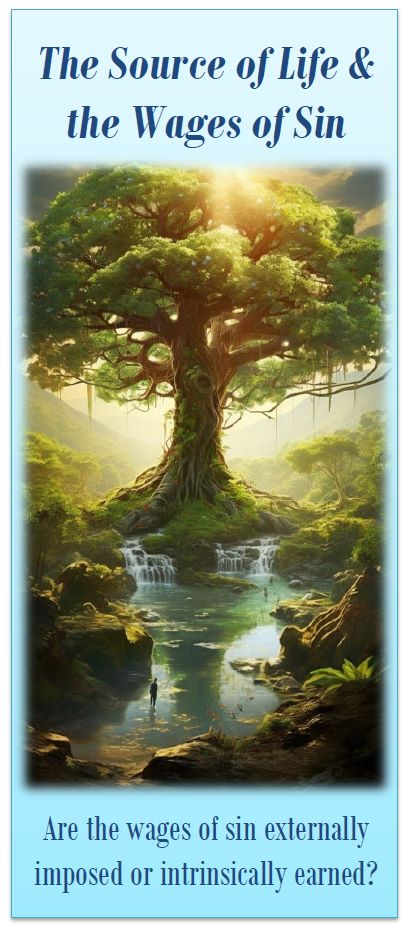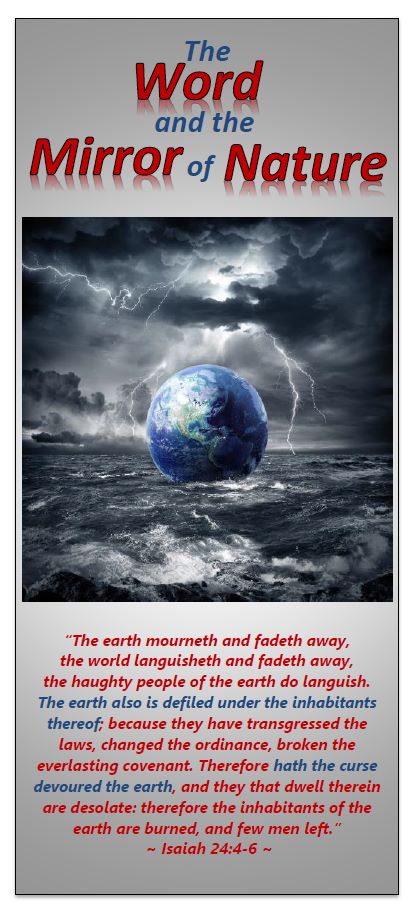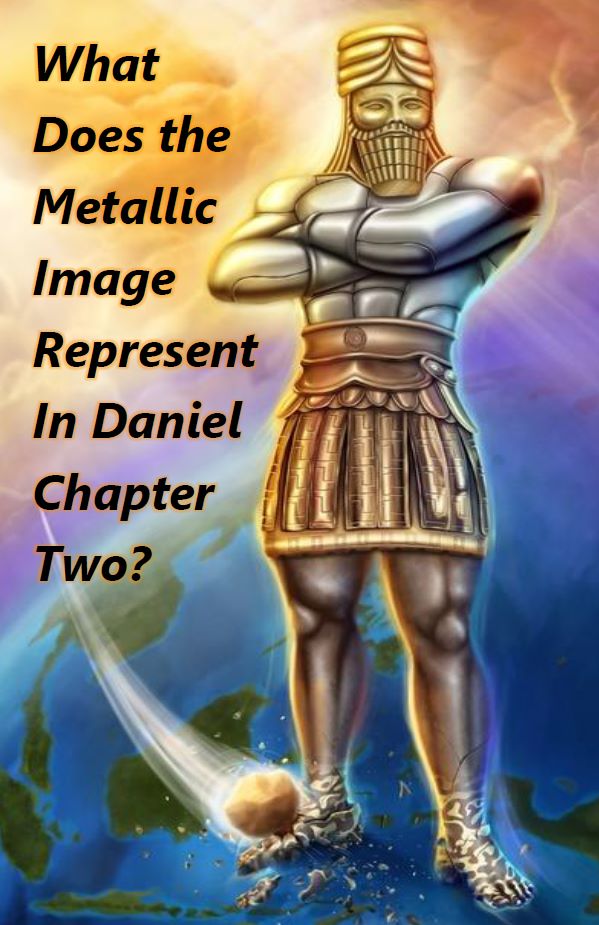(John 5:17, 18) Didn’t Jesus Claim He Was Equal to the Supreme God?
“But Jesus answered them, My Father worketh hitherto, and I work. Therefore the Jews sought the more to kill him, because he not only had broken the sabbath, but said also that God was his Father, making himself equal with God.” (John 5:17, 18)
Some have used these texts in an attempt to prove that Jesus claimed to be the supreme God, equal to the Father in every respect. Yet, to come to this conclusion one must ignore the immediate context. The very next verse records Jesus’ reply to this charge:
“Then answered Jesus and said unto them, Verily, verily, I say unto you, The Son can do nothing of himself, but what he seeth the Father do: for what things soever he doeth, these also doeth the Son likewise… For the Father judgeth no man, but hath committed all judgment unto the Son… For as the Father hath life in himself; so hath he given to the Son to have life in himself; And hath given him authority to execute judgment also, because he is the Son of man… I can of mine own self do nothing: as I hear, I judge: and my judgment is just; because I seek not mine own will, but the will of the Father which hath sent me” (John 5:19, 22, 26, 27, 30)
In response to the accusation that claiming to be the Son of God made Jesus equal to His Father, Jesus said that He could do nothing of Himself, that His Father committed judgment unto Him, gave Him life, and gave Him authority. Jesus directly refuted the charge that He was exactly equal to His Father. A person completely equal to the Most High God could not receive authority and life from Him.
Please don’t misunderstand. Jesus is equal to His Father in many respects. Jesus is exactly equal to the Father by nature. I am human because my parents are human. Jesus is God because His Father is God. In addition to sharing the same nature as His Father, God highly exalted Jesus and gave Him authority over the entire universe. Jesus has been given an exalted position, He has been made equal to the Father. The Father put all things under Jesus, except for Himself (1 Corinthians 15:27). The Father is still “greater than” Jesus in authority (John 14:28).
A reading of the Bible reveals clear distinctions between the Father and Son. The following is a partial list showing the authority of the Father:
• He’s the one who sent His Son.
“And we have seen and do testify that the Father sent the Son to be the Saviour of the world” (1 John 4:14).
• He’s the one who gave His Son a work to do.
Jesus said, “I have glorified thee on the earth: I have finished the work which thou gavest me to do” (John 17:4).
• He’s the one who commanded His Son what to say and speak.
Jesus said, “For I have not spoken of myself; but the Father which sent me, he gave me a commandment, what I should say, and what I should speak” (John 12:49).
• He’s the one who gave His Son power over all flesh.
Jesus said, “As thou hast given him power over all flesh, that he should give eternal life to as many as thou hast given him” (John 17:2).
• He’s the one who gave authority to His Son.
Jesus said that His Father, “hath given him authority to execute judgment also, because he is the Son of man” (John 5:27).
• He’s the one who told His Son to sit on His right hand.
“But to which of the angels said he at any time, Sit on my right hand, until I make thine enemies thy footstool?” (Hebrews 1:13).
• He’s the one who anointed His Son.
“Thou hast loved righteousness, and hated iniquity; therefore God, even thy God, hath anointed thee with the oil of gladness above thy fellows” (Hebrews 1:9).
• He’s the one who gave His Spirit to His Son.
“For he whom God hath sent speaketh the words of God: for God giveth not the Spirit by measure unto him” (John 3:34).
• He’s the one who gave to His Son to have life in Himself.
“For as the Father hath life in himself; so hath he given to the Son to have life in himself” (John 5:26).
• He’s the one who gave His Son all power in heaven and earth.
“And Jesus came and spake unto them, saying, All power is given unto me in heaven and in earth” (Matthew 28:18).
• He’s the one who highly exalted His Son.
“Wherefore God also hath highly exalted him…” (Philippians 2:9).
• He’s the one who gave His Son a name which is above every name.
“Wherefore God also hath highly exalted him, and given him a name which is above every name” (Philippians 2:9).
• He’s the one who has given all things into His Son’s hand.
“The Father loveth the Son, and hath given all things into his hand” (John 3:35).
• He’s the one who committed all judgment unto His Son.
“For the Father judgeth no man, but hath committed all judgment unto the Son” (John 5:22).
• He’s the one to whom Christ will be subject for all eternity.
“And when all things shall be subdued unto him, then shall the Son also himself be subject unto him that put all things under him, that God may be all in all” (1 Corinthians 15:28).
• He’s the one who is the head of Christ.
“But I would have you know, that the head of every man is Christ; and the head of the woman is the man; and the head of Christ is God” (1 Corinthians 11:3).
• He’s the one who is the God of our Lord Jesus Christ.
“That the God of our Lord Jesus Christ, the Father of glory, may give unto you the spirit of wisdom and revelation in the knowledge of him” (Ephesians 1:17).
In no case do we find that the opposite is true. The Son never sent the Father anywhere. He never gave the Father a work to do, or commanded what He should speak. The Son never gave power or authority to His Father. The Son never anointed His Father. He never gave life to His Father. The Father has never, and will never be subject to His Son. The Son is not the head of the Father, nor is He His God. It is acknowledged by most that the Father holds the highest rank. The continual attempt of trinitarians to make the Son absolutely equal to the Father is virtually proof that He is not. They never seek to prove the Father is equal to the Son. It is true that Jesus is equal to His Father in many respects, including nature, but in each of the aspects mentioned in the verses above, the Father holds the highest position. In fact, He is the only being in the Bible given the titles, “most High” or “the Highest” (Mark 5:7; Luke 1:32).
How many most Highs can you have? If there is more than one most High, then you have just eliminated the most High, because now you have a committee of most Highs. There can only be one most High.
Paul wrote, “But I would have you know, that the head of every man is Christ; and the head of the woman is the man; and the head of Christ is God” (1 Corinthians 11:3). In explaining heirarchy, Paul stopped when he came to God. Why? He could not go any higher! The Father is the most high God, and is the head of Christ.
Jesus never claimed to be equal in every respect to His Father. Instead, He made it very clear that His Father is greater than He. Jesus said, “My Father is greater than I” (John 14:28). He also said, “My Father … is greater than all” (John 10:29).






